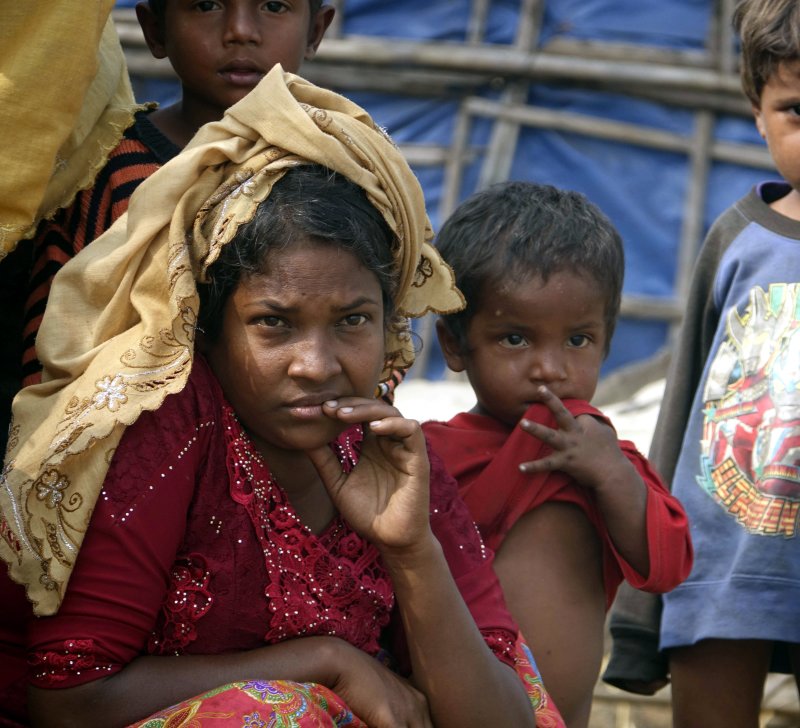Rohingya refugees sit near a makeshift home in Maungdaw township, Rakhine State, western Myanmar in January. File Photo by Nyunt Win/EPA-EFE
Nov. 15 (UPI) -- Officials in Bangladesh said Thursday they won't force thousands of Rohingya refugees to return to Myanmar.
The Rohingya Relief and Repatriation organization in Bangladesh told Al Jazeera it scrapped plans to return 2,260 Rohingya from 485 families to Myanmar, which was set to begin Thursday.
"No one will be forced back," Rohingya Relief and Repatriation Commissioner Abul Kalam said.
The plan was abandoned because Bangladesh officials said they couldn't find any Rohingya willing to return. They said they will continue to encourage the refugees to go back.
United Nations officials say more than 700,000 refugees have fled to Bangladesh to escape violence by the Myanmar military.
The United Nations and other human rights organizations have opposed repatriation, saying the Rohingya shouldn't be forced into a situation in which they can be preyed upon.
The repatriation is part of a memorandum of understanding signed between the two countries in June, allowing "voluntary, safe, dignified and sustainable" returns from refugee camps in Bangladesh.
Refugee Mohiuddin Mohamad-Yusof, head of the World Rohingya Organization in New York, told UPI this week his family remains in camps and he's worried for their safety.
"Unless they have some guarantees of rights and protections, sending them back is not justified," he said. "This is the third time they are going back, the same thing will happen. They are victims of genocide."
On Wednesday, Amnesty International called the repatriation efforts "reckless."
"These women, men and children would be sent back into the Myanmar military's grasp with no protection guarantees, to live alongside those who torched their homes and whose bullets they fled," Nicholas Bequelin, Amnesty's regional director for East and Southeast Asia, said in a statement.
Refugees say Myanmar soldiers have killed families, burned homes and participated in gang rapes in a Rohingya crackdown U.N. officials consider to be ethnic cleansing.
Myanmar officials have countered that their military forces have been fighting against terrorism, and deny most of the claims of violence made by the refugees.















